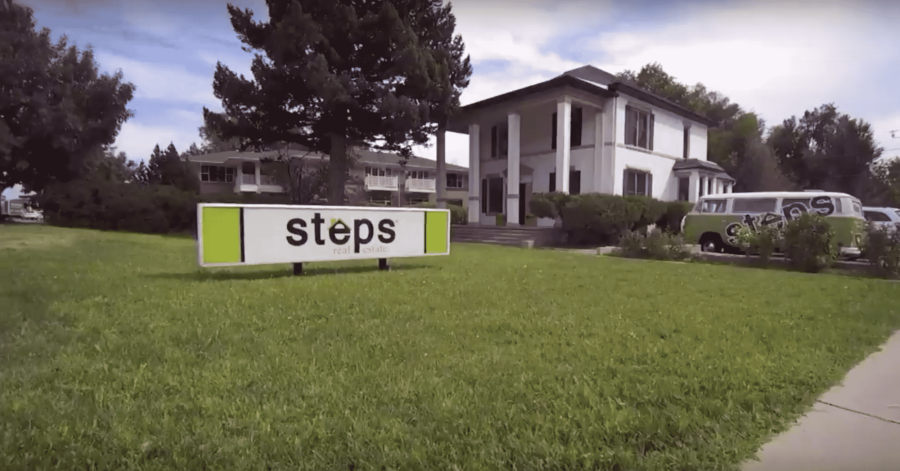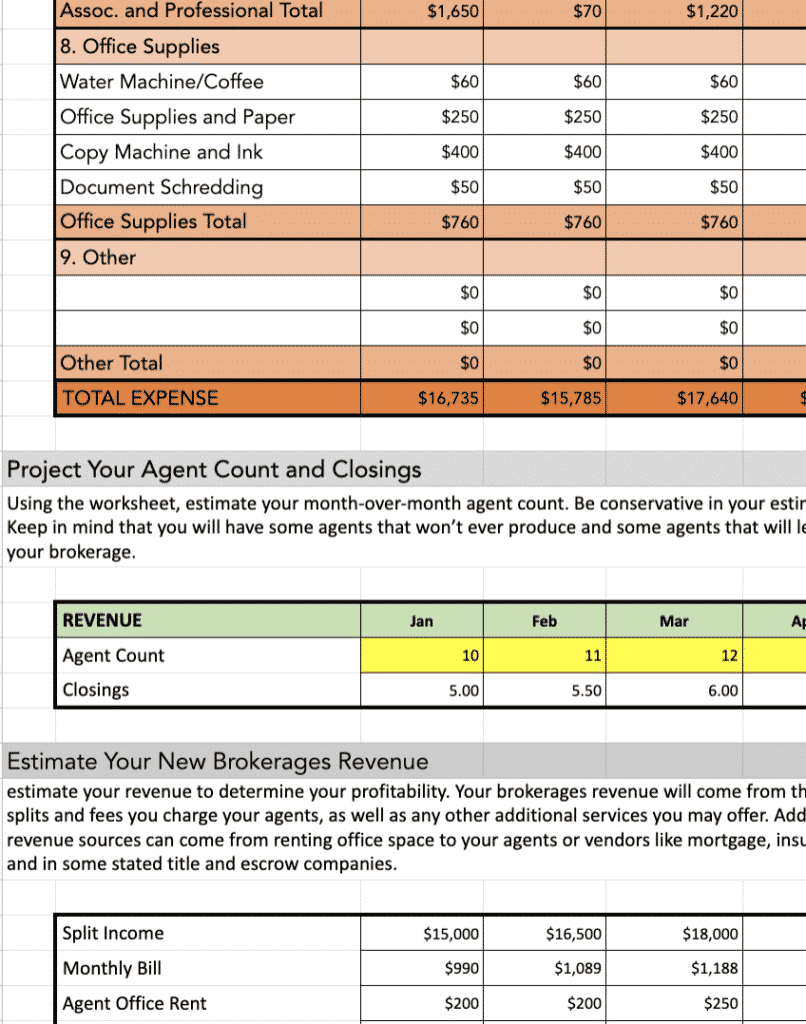About seven years into my real estate career, I got the itch. No, not to leave my wife, but to start my own real estate brokerage! Always the optimist, I decided to throw caution to the wind and partnered with another agent to open my first brokerage. To our dismay, despite our success as top-producing agents, we struggled to grow the real estate brokerage beyond just a few agents.
Later in my career, I worked as a team leader at Keller Williams Realty and as an investor in two Keller Williams franchises. This experience taught me the recruiting skills and processes needed to keep agents productive. Even though I was very successful, the itch to build my own real estate brokerage brand never went away.
So in 2014, I set out on my own to start an independent real estate brokerage from scratch. The long five-year journey of creating a new brand, managing employees, recruiting agents, and building out offices had opened my eyes to the things I wish I had known before starting a real estate brokerage.
In this article, I will share my wisdom of the seven things I wish I knew before starting a real estate brokerage.
1. Your Brokerage Needs a Clear Objective

Before you blow through your savings or you max out your credit cards to open your new real estate brokerage, get clear on why you are choosing to go on this adventure and clearly define what you wish to accomplish.
An unclear objective will make your important decisions more difficult and can leave you without an exit strategy.
Ask yourself questions like, “Do I want to build a brokerage that serves a specific community or that serves multiple areas?” and “What type of agents do I want to work with and why?”
Your answers will provide context for all the other decisions you must make for your brokerage. For instance, if you are starting a real estate brokerage to serve a specific community, then your brand and logo should be specific and reflect the community it serves. However, if your goal is to grow beyond your local community, city, or state, your branding and logo will need to be unique so you can obtain a national trademark prior to expanding.
I have coached brokerages that had the ability to expand into other markets, but because of decisions like this that were made in the early stages of their development, the growth of the brokerage was severely diminished.
Make your decisions with the end result in mind and find a competitive advantage that allows you to differentiate from your competitors.
2. Your Brokerage Needs a Competitive Advantage

A successful startup builds on the success of the past but also brings a competitive advantage. Your real estate brokerage startup should be no different. A competitive advantage is a clear differentiation that separates you from the competition in the customer’s view. This allows your brokerage to stand out and makes your brokerage more memorable.
There are three main types of competitive advantage:
3 Types of Competitive Advantage for Your Brokerage
1. Price
Some brokerages create a competitive advantage either by offering lower commissions to the sellers (Redfin) or by reducing splits and fees to the agent (HomeSmart). These business models operate on slim margins and high volume.
Before you jump on board with a low-fee business model, consider the months or even years you will lose money before you are breaking even. Personally, I would rather provide another competitive advantage and maintain profit margins.
2. Unique Product or Service
Coldwell Banker created a competitive advantage with their RealVitalize program. RealVitalize allows sellers who are low on cash to be able to update their dated home with things like new granite counters and appliances, and pay for it at closing.
Like the RealVitalize program, your competitive advantage doesn’t need to be something nobody else offers. It just needs to be communicated in a way that customers assume that you are the only brokerage in their area offering the unique product or service
3. Specific Niche
The most common way brokerages differentiate themselves from their competition with a competitive niche advantage is by focusing on a specific geography, demographic, or industry.
In the past, real estate brokerages used geography as their specific niche, but today, there are entire brokerages that just focus on first-time buyers, luxury homes, condos, or even military buyers and sellers.
Your brokerage can also have a specific niche of the type of agent it specializes with. This can be agent types like new agents, seasoned agents, luxury agents, and teams.
Having a competitive advantage allows the customers and agents to differentiate your real estate brokerage from all the others. Focusing your marketing and messaging will reduce your overall cost of acquiring customers and agents alike.
Next, we discuss in detail how to attract the right type of agents for your brokerage.
3. A Recruiting Plan Is Essential to Attracting the Right Agents

Your objective and competitive advantage are the first two things you must get clear on before starting your real estate brokerage. The next step is creating a plan to recruit the right type of agents to fulfill your dream.
Begin by using your objective (what you want to achieve) and your competitive advantage (what differentiates you from the competition) to determine the type of agent who will thrive at your brokerage. For example, if you are building a luxury brokerage, then a lot of brand-new agents are very unlikely to produce the results to help your brokerage achieve your objective.
The secret to recruiting is being very clear on what your objective and competitive advantage is and how this can benefit the agents you wish to attract. Once you’ve done that, you need to focus all your recruiting efforts on that specific agent type.
This is done by narrowing the vast pool of agents in your market down by their production and the location they wish to specialize in. Once this is done, you will use well-written scripts to attract the right agents or repel agents who don’t fit your brokerage. You can learn more about recruiting scripts in our article The Ultimate Guide to Recruiting Real Estate Agents (plus scripts and objection handlers).
Next, your presentation must inspire the agents to want to be a part of your dream. Since your brokerage is new, you must sell them on the vision. You will do this by having a clear and concise message about what you are going to achieve and how you are different from the other brokerages.
Lastly, you will need to have outstanding processes and procedures to serve your new recruits and fulfill all the promises you made. Curious about what this entails? No worries … keep reading.
4. You Need to Develop the Necessary Processes & Procedures to Operate a Real Estate Brokerage

As I shared earlier, the fact that you may have the skills to be a successful solo real estate agent by itself doesn’t mean you will be successful at leading and operating a real estate brokerage. The skills and processes are completely different.
To be successful as a salesperson, you must develop your own skills, follow your own processes, and hold yourself accountable. Conversely, to successfully run a real estate brokerage, you must be able to lead agents and employees to consistently follow the processes and procedures that you set out for them. In other words, the skills that made you a great agent might not translate to make you a great broker/owner. More on this later.
This requires you to take the time to think out what processes and procedures are necessary for you to run your brokerage. To help you out, I compiled a complete list of the processes and procedures to run a successful brokerage.
Processes & Procedures to Run a Real Estate Brokerage
| Agent Support | |
|---|---|
| Weekly Communications Plan | |
| Agent Training Plan | |
| Team Meeting Plan | |
| Agent Marketing Support Plan | |
| Broker Supervision | |
| Contract Compliance Process | |
| Contract Review Plan | |
| Industry Changes and Updates Communications Plan | |
| Broker Question Process | |
| Office Management | |
| Agent Split/Fee Management | |
| Commission Disbursement Process | |
| Agent Billing Process | |
| Escrow Accounts Management | |
| Financial Review and Management | |
| Employee Hiring and HR Management | |
| Annual Tax Filing Plan | |
| Agent Recruiting | |
| Agent Recruiting Plan | |
| Agent Onboarding Plan | |
| Agent Off-Boarding Plan | |
| Office Management | |
| Cleaning and Maintenance | |
| Security | |
| IT Support | |
Before you turn in your pink slip at your brokerage, take some additional time to observe how they are managing these processes and procedures. You may not even be aware of some of these because they operate behind the scenes.
Managing Employees
In addition to creating your processes and procedures, you will also need to develop the ability to lead and manage employees to follow the processes to operate your brokerage.
Many agents think that they would be good at managing employees because they are easily likeable. However, being easy to get along with is not a good indicator of being a successful manager and, in many cases, can backfire.
Learning how to hire, train, and manage employees is a monumental feat on its own. Yet, if you wish to build and grow a successful brokerage, you will need to develop this skill. Unfortunately, I have not found a universal simple path to develop this ability.
The best advice I can share (without writing a book here) is to be very clear on the expectations and execution of the tasks that are required of the position from the beginning. This will make it easier to hold them accountable in the future. Yet, to accomplish this, you must have your processes and procedures written out in advance.
Each of these important decisions build on the next. This is why I am suggesting you take the time now—before your brokerage is open—to get clear on your objective, find a competitive advantage, determine the type of agents you want to serve, and build your processes and procedures. All this before deciding on what software and office location is right for your brokerage.
5. Software Can Make or Break Your Brokerage

The secret to building a brokerage that will retain agents for years to come is consistency. This is because consistency builds trust, and trust leads to agent retention and agent referrals. The key to consistency is investing in real estate brokerage software.
I am well aware that there are successful brokerages that operate completely off of Excel spreadsheets and the sweat of their employees. The risk with this approach is that humans are just that: human. That means they make mistakes. Not to mention the massive problems you’ll have when you lose a key employee who takes the knowledge of your processes with them when they leave.
You don’t want to put yourself or your brokerage at risk by relying on ad hoc and insecure systems and processes. Today, there are many software systems that will protect your brokerage from losing your processes when a key employee leaves and can provide you with clear reporting to insure that the procedures are being followed by your agents and employees. Cutting-edge software not only saves you time, it can also attract tech-savvy agents.
Below is a list of procedures that are imperative in running a successful real estate brokerage and the software that makes these processes secure and easier to manage.
The Software Options to Successfully Operate a Real Estate Brokerage
| Procedure | Objective | Optional Software | Cost |
|---|---|---|---|
| Agent Marketing | Create custom listing fliers, monthly mailers, and newsletters | ||
| Microsoft Publisher | $150/yr | ||
| BannerSeason | $45/mo | ||
| ProspectPLUS! | As needed | ||
| Brokerage Management | Track agent transactions, income projections, and manage agent splits and fees | ||
| Lonewolf | $350+/mo | ||
| Total Brokerage | $219+/mo | ||
| Contract Compliance and Management | Manage the broker file, broker review, and file storage | ||
| Dotloop | Call for pricing | ||
| SkySlope | $350+/mo | ||
| Recruiting Software | Pull market share reports, agent production reports, and contact information | ||
| BrokerMetrics | $199+/mo | ||
| Brokerkit | Call for pricing | ||
| Financial Management | Basic financial management and tax preparation | ||
| QuickBooks | $60/mo | ||
| Emails | Brokerage branded email accounts for agents | ||
| Workspace by Google | $6/user | ||
| Websites | Brokerage website and individual websites for agents | ||
| Placester | $64+/mo | ||
| Real Geeks | Call for pricing | ||
| Agent CRM | Contact relationship management software | ||
| BoomTown | $750+/mo | ||
| Zurple | $399+/mo | ||
| LionDesk | $70/user | ||
| Showing Service | Manage showings and feedback | ||
| ShowingTime | $45+/mo | ||
| Payroll Service | Manage payroll, employee liability insurance, and tax withholding | ||
| Oasis Advantage | $75-$150/mo | ||
| QuickBooks Payroll | $22/mo |
Some of the software providers offer more than one feature than the category I have placed them in. For example, Propertybase provides websites, customer relationship management (CRM), and lead generation software in an all-in-one solution. For a deeper look at all-in-one CRMs, see our recent article: The Best Real Estate CRM for 2022.
Also, in some of these categories (like brokerage websites), there are endless options. My goal here is to provide you with a general understanding of what software is available. Therefore, I suggest doing your own research to determine which software providers are right for your situation.
The decisions you have made thus far are all extremely important, but none of them are as expensive or put you at risk more than selecting the right office and location for your real estate brokerage. Let’s take a deeper look.
6. How to Select the Right Office for Your Brokerage

I can’t say this enough: Get your office right from the beginning. Your office is often your largest expense and your greatest risk. Before getting tied into a long-term lease, you must first take into consideration your overall objective with your brokerage, your competitive advantage, and the type of agents you ultimately wish to recruit. Make sure that the office and the location is in line with all of your goals. This way, you have a greater chance of getting it right the first time.
Will Agents Return to Offices?
This is the $10 million dollar question. Will agents return to the office after the pandemic is over? The concern is if agents get used to working from home, then do you even need to plan and budget for an office when opening your real estate brokerage?
My guess is even though most agents will stay mobile, many will still want the option to work from an office again. For some of us, it is difficult to motivate ourselves from home and for others, their home may not be conducive for doing business. But this may not be the only reason you want an office.
Your Office Is a Statement to Your Customers & Agents

Your office can be more than just a place for team meetings—it can be a statement to customers and agents of your commitment to the community and your brand. For instance, if you are building a boutique brokerage that is specific to a neighborhood, you want a visible office to create brand awareness in the community you serve.
On the other hand, some seasoned agents are attracted to semi-private offices or at least the idea of having them available. If your goal is to recruit professional, seasoned agents, then an office building would be the suitable solution. A secret you may not know is instead of breaking the budget on A+ main floor office space, consider the third floor or fourth floor. The higher floors are usually 15% to 25% less than the main floor.
If you’re building a brokerage that teaches newer agents, consider an office space with few private offices and a larger training room that can be closed off to not bother the other agents while you are teaching. When not in use, the training room can be used as agent drop-in space.
Are Co-working Spaces a Viable Solution?

I have had brokerages with beautiful executive office space and I have run my brokerage from a co-working space. The low cost and short-term lease commitments can make co-working space a great place to launch your brokerage. The long-term challenge with co-working space is coordinating things like team meetings, lead generation, and educational events with the other members of the co-working space.
The other challenge is that as you grow, the cost can rise exponentially. Room for two to three agents may only cost as little as $400 a month, but when you grow to 15 agents, the cost can exceed the cost of having your own private office space. As with short-term rentals like Airbnb, you will pay more for the flexibility that a co-working space offers.
If you are considering co-working space, beware of additional costs like parking, coffee and snacks, conference room rental, and so forth.
7. How to Select the Best Location for Your Brokerage

One of the most important things you must consider when selecting the office for your new brokerage is location. Location is more than just deciding what area of town you want to be in. The location can determine if your agents are going to sell mostly condos in the city or mini-mansions in the suburbs.
Parking and accessibility is important if you have customers or agents who drop in to the office for short periods of time. Many downtown locations are desirable, but the lack of parking and accessibility might make them unattractive to some agents.
If you are in a tourist town where visitors may be interested in retiring or buying a second home, you may want to consider a small house or retail location on the main strip that will attract curious tourists to come in. The office location and style must be attractive and inviting so customers feel comfortable enough to stop in.
Bottom Line
My agenda is not for you to start your own brokerage. It is, however, to provide you the information and a true picture of the obstacles that come with starting your own brokerage so you can make the best educated decision based on your individual goals and situation. If you’re up for the challenge, read on to learn How to Start a Real Estate Brokerage (Without Going Broke).
If you are thinking that you don’t have the time or vision to create your own brokerage, you may want to consider a franchise. Franchisors have already figured out the vision and the plan for their franchisees. Therefore, if you have the drive to build a brokerage and don’t have a plan, then a franchise may be the perfect solution for you.
Simply put, opening your own brokerage is not as easy as you may think. But if you use this information to prepare yourself to make the most important decisions prior to opening your brokerage, you will have a higher chance of achieving the success you desire.
Over to You
Do you have a suggestion for opening a brokerage that we overlooked? Let us know in the comments or join us on our Facebook Mastermind Group here.




Add comment